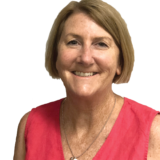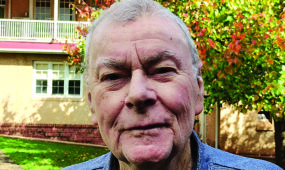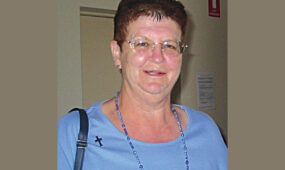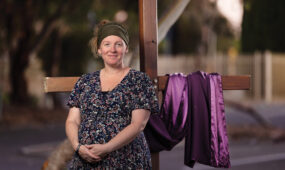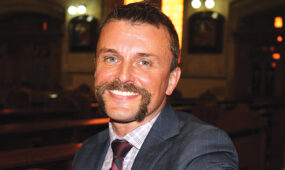Living the Marist mission at home and abroad
People
In his 60th year as a Marist Brother, Des Howard is proof that it’s never too late to find new ways to live your vocation. He spoke to JENNY BRINKWORTH about his latest role as a prison chaplain and his rich and varied life of mission and ministry.
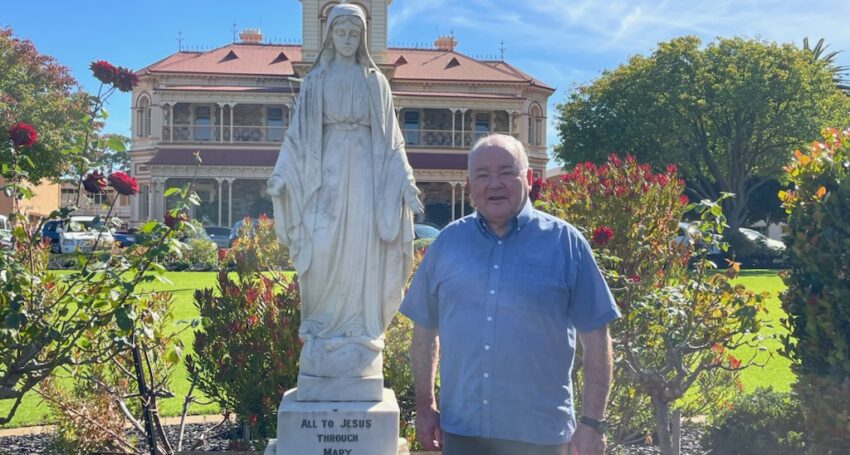
When Brother Des Howard returned to his home town of Adelaide two years ago to lead the small community of Marist Brothers at Somerton Park, he was keen to contribute to the wider society in some way.
While establishing the province’s first dedicated community for ‘senior’ brothers in Melbourne, he volunteered at the House of Welcome, a centre run by the Sisters of Charity for people living on the streets.
Advertisement
When he mentioned to Adelaide Archdiocese prison chaplain Mel Monfries that he had an interest in this ministry, she was quick to take him up on the offer and introduced him to the principal chaplain Ian Schneider.
After a two-day training program and “vetting” by one of the longer serving prisoners to ensure he wasn’t going to “proselytise”, Br Des began visiting Yatala Prison one day a week. As well as seeing eight prisoners each Wednesday, he runs Sunday worship services twice a month and participates in ecumenical services that are shown on closed circuit television throughout the prison.
“It’s been really life-giving to be involved with other denominations,” he said.
But 80-year-old Br Des doesn’t refer to himself as a religious brother when in the prison. He is simply ‘Des’, a lay person who is also a chaplain.
“I don’t put God on anyone, we just talk in general and I get to know them, it’s a privilege really.
“Some share deeply about their story and their life, so it’s a listening and support role.
“I don’t represent the law or society, I just come as a friend. We generally share a joke and finish with a spontaneous prayer, often requested by the men themselves.”
It’s a very different ministry to what he is accustomed to, having spent much of his religious life as a spiritual formation leader, including 20 years working in the Marist missions in Papua New Guinea and Fiji, and six years directing formation programs in Italy.
Br Des acknowledged that ‘formation’ was not an easy word to define but said it aimed to “facilitate growth in the freedom to promote individual appropriation of the vocational call”.
“It enables and affirms continual effectiveness in mission and ministry,” he explained.
His own vocational calling came while attending Marist Brothers Thebarton.
“The Brothers made a strong impression on me as men who enjoyed life, taught us well and played sport like champions amongst us,” he said.
“They were always approachable. Corporal punishment was rare. So I decided in Grade 7 that I would like to join them.”
He enjoyed a happy family life in Adelaide where he was born and raised together with his five sisters. His younger brother Greg was born when he was 19.
Advertisement
“Our Catholic faith was central to our identity, with full support from our various parishes and schools,” Br Des recalled.
“The daily recitation of the Rosary after the evening meal was tedious for us kids. Religion was all about practice.”
Music was also a feature of his family life. His mother was a talented pianist, playing in a dance band around the Mid North as a young woman and later participating in church choirs and performing at charity functions, weddings and funerals.
“We had a weekly singalong around the piano, generally of a Sunday eve, enjoying the fun with relatives. Irish songs were prominent together with Aussie favourites. Dad liked his Italian arias which he learnt in Rome as a seminarian for four years.”
Des left Adelaide after turning 13 to commence high school at the juniorate in Wangaratta. After six years in the juniorate where he studied French and Latin, he entered the novitiate at Macedon and 18 months later, in July 1963, he decided to continue his vocation as a Marist Brother. For the next five years he was in “temporary profession” whereby he renewed his vows every year until his final profession which took place in Sacred Heart College Chapel.
Having already completed teacher training at Dundas in Sydney, his first ministry was working in Marist schools in Subiaco, WA, and Bendigo, Victoria, for three years each and then he spent two years at Sacred Heart. His love of sport, particularly football, cricket and tennis, came in handy as he took on coaching roles.
But his heart was set on another course.
“From a young age I was attracted to missionary life, especially after hearing anecdotes from our returning missionary confreres in Papua New Guinea,” he said.
“My dream came true! In 1974, I was invited to join our Brothers at St Xaviers High School on the idyllic Kairiru Island off the coast of Wewak in the East Sepik province of PNG where we had 400 boys enrolled in the first four years of secondary, all of them boarders.
“Gardening and fishing were part of the manual work routine. In the secondary classes, students were expected to speak English. However, they were allocated areas around the hilly terrain and the stream where they could build their own bush huts for their different language groupings and they would fend for themselves over the weekends.
He was enjoying teaching in a totally different culture and relating to local teachers and volunteers from different countries and confreres.
“I was a Catholic, but I became a Christian in PNG,” he said.
Br Des was asked to move to Fiji to assist in the novitiate in Lomeri about 60km west of Suva. He was asked to stay on as master of novices which required him to do further study at the Loyola University in Chicago.
In the meantime, he was elected to a six-year term as district leader for Melanesia and instead of going back to Fiji he became responsible for 60 Brothers in Papua New Guinea and the Solomon Islands.
Returning to Chicago in 1994 to complete his Masters in Pastoral Studies, he then moved to Melbourne where he was encouraged to take a year to “get used to the Australian culture again”.
He returned to Adelaide in 1995 to teach at Sacred Heart but by July of 1996 he was back on the road again after being recalled to Melbourne for an administrative role.
As Vice Provincial he was responsible for promoting community planning and living, visiting the 140-odd Brothers in their communities in WA, Victoria, South Australia and the Dioceses of Wilcannia Forbes and Wagga.
His transient life continued when in 2002 he was asked to take on another formation role in Manziana, a town about an hour north-west of Rome, where the Marists run programs on mid-life and ‘third age’ spirituality.
He took both groups on pilgrimages each year, including to the place where St Marcellin Champagnat established the order in Lyon, France.
Br Des said he particularly enjoyed the third age program and helping older Brothers to “engage with the energy of those years”.
Consequently, when he returned to Australia and was asked by his Provincial what he would like to do next, he suggested helping set up a community for older Brothers at North Fitzroy.
“We converted a house we owned for senior Brothers, it’s certainly not a nursing home, everyone had to contribute and find a sphere of interest in the community,” he said.
“I enjoyed it immensely, and so now I am doing the same here at Somerton Park.”
Coming back to Adelaide after a long absence has enabled him to reconnect with his younger brother and two of his five sisters living here, as well as nieces, nephews and extended family.
The Somerton Park community’s ministry is hospitality and they welcome visitors, including from the many branches of Marist mission and ministry at the national level.
Br Des said his life had been shaped by living in community.
“Community life is at the core of our vocation as Brothers,” he said.
“We don’t choose who we live with but it works because of our common ideals, formation, and spirituality.
“Our Marial character and family spirit are hallmarks of community life. In the words of St Marcellin Champagnat in his last will and testament: Let it be said of the Brothers as it was said of the first Christians, ‘See how they love one another’.”
Expanding on the influence of Mary on a male religious order, Br Des said she was “a human model for us, a woman of strength, discernment, and total faithfulness”.
“She had dust on her feet, and she softens our male presence in our community and apostolate.”


